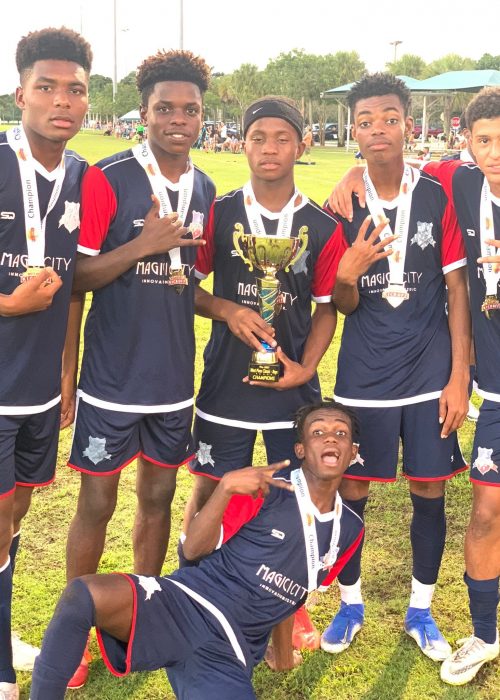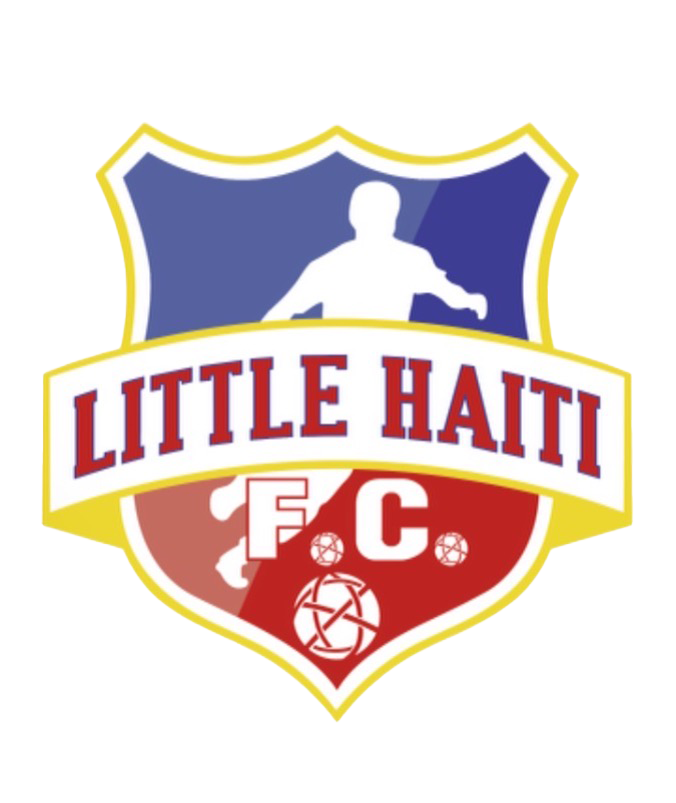Little Haiti F.C.
THE ONLY FREE SOCCER PROGRAM IN THE STATE
Little Haiti FC is the only free, not-for-profit start-up youth soccer club in Florida. LHFC serves 175 children from a diverse population of underserved families from the central Miami neighborhood of Little Haiti and surrounding communities. In the past seven years 100% of the children in the program graduated high school and 80% went on to higher education.
EXECUTIVE SUMMARY
Little Haiti FC is a not-for-profit start-up youth soccer club serving a diverse population of underserved families from the central Miami neighborhood of Little Haiti and surrounding communities. When fully operational the club will support competitive soccer teams for boys and girls in single-year age groups ranging from eight to 18. Teams will compete in fully sanctioned leagues and tournaments affiliated with the Florida Youth Soccer Association (FYSA) and it governing body, U.S. Soccer.

IMPLEMENTATION SUMMARY
The competitive side of soccer will grow slowly at Little Haiti FC. The club will select one team (boys ages 15 to 16) for participation in the Dade Youth Soccer spring soccer league. In fall 2014 the club will select a second competitive team, allowing for local and state-level competition within two age groups in the 2014-2015 club season. Age group teams will be added to capacity over a planned five-year period.
Our Background
Soccer is the second most popular youth participant sport in America (behind basketball) with an estimated seven million boys and girls playing in 2013. Roughly 20 percent of boys and 17 percent of girls nationally between the ages of 11 and 14 have played competitive high school or club soccer. Those numbers drop dramatically among urban and low-income populations. Minority status, low household income, high neighborhood density, and single-parent households all correlate highly with low participation in youth soccer in America.
Competitive high school and club youth soccer in Miami-Dade County reflect these trends. Dense, low-income communities are limited in their ability to invest resources to attract players and families; and the fee-based structure of existing clubs is prohibitively expensive for many low-income populations.
Despite limited after-school opportunities for organized soccer clubs soccer in Miami’s Haitian-American neighborhoods, demand remains exceptionally strong due to the sport’s popularity and following among the Haitian immigrant community here. Miami Edison Senior High School is routinely ranked among the top high school boys teams in Miami-Dade, yet non-school youth soccer opportunities are few.
THANK YOU TO OUR SPONSORS

THE BRADY HUNTER FOUNDATION
Visit Website
Four Seasons Hotels and Resorts
Visit Website
PepsiCo, Inc.
Visit Website
United Premier Soccer League
Visit Website
